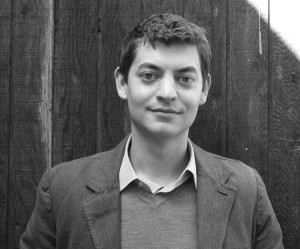
Kevin Wilson has the book world buzzing for a reason. A pair of them, actually. Back in 2009, the Tennessee native hit the lit scene with Tunneling to the Center of the Earth, an artful, mischievous short-story collection that nabbed him a 2010 Alex Award. Now Wilson is back with his first novel The Family Fang, and the critics are raving. Comic, tragic, and endlessly inventive, The Family Fang tells the madcap tale of siblings Annie and Buster as they return to their childhood home after years spent avoiding their performance artist parents Caleb and Camille. For Annie – a movie actress shamed by an Internet nudity scandal – and Buster – a novelist nearly brained in a potato gun mishap – their reluctant homecoming is born from a desperate need to nurse their wounds in seclusion. Their parents, however, couldn’t be happier to have them back. After years of casting their kids as the stars in their Candid Camera-style stunts, Caleb and Camille have plans for one final family performance that might not actually be a performance at all. Named a Top Ten Book of 2011 by TIME Magazine, Esquire, and Booklist, The Family Fang has been described by Ann Patchett as “a tour-de-force examination of what it means to make art and survive your family… I have never seen anything like it before. The best single word description would be genius.” Mr. Wilson recently spoke with us via email about the positive response to The Family Fang, novels vs. short stories, the tricky business of parenting, “true” art, Nicole Kidman as Camille Fang, and, of course, potato guns.
Evanston Public Library: First off, congratulations on the many accolades The Family Fang has earned including its selection to numerous 2011 Best Book lists and status as a NY Times Bestseller. What is your reaction to how well The Family Fang has been received? How does it feel to have an author like Ann Patchett describe your debut novel as “genius?”
Kevin Wilson: In the months before the book was due to be released, I had reasonable ideas of what could happen. I thought it would get reviewed in a few places and they might be favorable and I expected that it would sell a decent number of copies, at least more than my short story collection. Then, I had that secret stash of hopes for what could happen and that included very nice reviews and possibly some national notice and that the book would sell enough that I could have an easier time publishing the next book. So, when the book did even better than that, I didn’t really have a frame of reference. Perhaps I just don’t have expansive enough dreams, but it went beyond what I hoped for. It was, of course, a thrill.
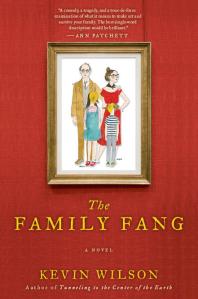 EPL: Could you give us some insight into your inspiration for the novel? Where did the idea for the book originate, and how did it evolve over time? Are the complex, wildly eccentric Fang characters – particularly Buster – drawn from any personal experiences? More specifically, have you ever fired a potato gun?
EPL: Could you give us some insight into your inspiration for the novel? Where did the idea for the book originate, and how did it evolve over time? Are the complex, wildly eccentric Fang characters – particularly Buster – drawn from any personal experiences? More specifically, have you ever fired a potato gun?
KW: I had started, quite a few years ago, a story about a brother and sister who had to play Romeo and Juliet in their high school’s production. It didn’t really work and I eventually gave up on the story, but I couldn’t stop thinking about those two kids.
When my son Griff was born in 2008, I was finishing copy edits on my story collection and figuring out what the novel was going to be. The first year of having that boy in our house was really difficult. I felt like my shortcomings as a parent were going to ruin him for all time; that his being my son was a form of abuse. These were very melodramatic thoughts, but they felt real. You have so much power over this person, but you have no idea whether what you are doing is ruining them or not. I finally returned to those brother and sister characters, and they started to click into place when I decided to write about their parents as well.
Living in a rural area in the Southern part of the United States, you cannot help but find yourself holding a potato gun, hoping you do not blow yourself up. I have seen a foot demolished by a misfired potato gun; it was as unpleasant as it sounds. So, I resisted the urge to do more research when I was writing the book. I don’t trust myself with a potato gun.
EPL: How did the experience of writing a novel compare to working on your story collection Tunneling to the Center of the Earth? Do you prefer one form over the other, and what are the inherent challenges of each?
KW: Well, the stories were written over a ten year period, so I feel like they can differ in terms of style and tone because they are individual stories, but with the novel, the need to maintain a uniform style and form and level of competence was much greater. Also, coming from a short story background, I had to keep resisting the urge to get out of the narrative and keep reminding myself that I had the extra space to explore these characters more than I would with a story.
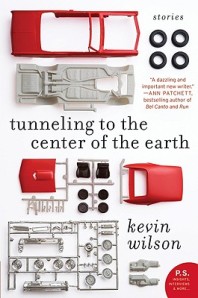 I really love both forms and would like to continue working with each one. The challenges are similar in some ways – finding a story that will sustain itself, that will surprise you – but I go about them differently. In a short story, I move quickly into the action and I tend to focus on the plot, the conceit, quite a bit more than characters. In the novel, I really focused on the characters and allowed myself the space to let the narrative meander a little more than I would with a short story.
I really love both forms and would like to continue working with each one. The challenges are similar in some ways – finding a story that will sustain itself, that will surprise you – but I go about them differently. In a short story, I move quickly into the action and I tend to focus on the plot, the conceit, quite a bit more than characters. In the novel, I really focused on the characters and allowed myself the space to let the narrative meander a little more than I would with a short story.
EPL: The Family Fang is a very funny book that deftly explores Annie and Buster’s complicated relationship with their parents. One reviewer has even described the novel as a “scathing critique of how the baby-boom generation maltreated Gen X.” Would you say that’s a fair assessment of one of the book’s greater themes? Did Caleb and Camille teach their children anything of value, or did they fail completely as parents?
KW: This is a hard question to answer. I’m not sure that my intentions were to focus on a specific generation. What I really wanted to explore in this novel was the idea that children are shaped by their parents, whether they like it or not, and that children then seek to in some ways reinvent themselves to become their own person. I also wanted to talk about how parents spend so much time raising their children in whatever way they think is best, and the weirdness of watching those children grow older and become independent and, in some ways, become a stranger. I picked extreme parents so that I could do a little more with those ideas.
I do think Caleb and Camille gave their children some things that were worthwhile – an appreciation for the process of making art, an understanding of how weird the world can be – but I think perhaps the way they went about teaching their children these things is the problem.
EPL: Caleb and Camille are amusingly outspoken about what they consider “true” art. How do your own aesthetic tastes compare to their extreme views? Do the Fang’s performances have any artistic merit or are they simply making “mischief?” Do you have a favorite among their many “strange and memorable” pieces?
KW: I do not share their extreme views about what is and is not true art. I actually think almost anything, if it is posited as such, is art. I think the act of living, if considered, is an artistic enterprise.
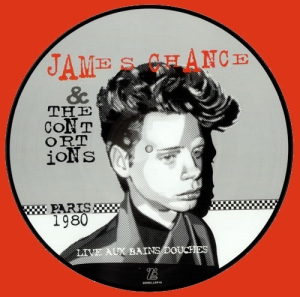 I do think the Fangs are making art, and art can always be tied to mischief. My favorite piece is probably the musical performance in the park, because it has an element of art being made (the music, the songs) which is then critiqued (the booing) within the actual performance.
I do think the Fangs are making art, and art can always be tied to mischief. My favorite piece is probably the musical performance in the park, because it has an element of art being made (the music, the songs) which is then critiqued (the booing) within the actual performance.
Finally, all the music and movies that the Fangs like are the music and movies that I also like. I love The Third Man; I love James Chance and the Contortions.
EPL: As a writer, husband, and father, how do you balance your family and your art?
KW: I try to make space in my life for writing, but it’s not my primary focus. I’ve said it before, but I think I might be a little lazy when it comes to writing, because I’d always rather be playing with my kid or hanging out with my wife. My family fill up my life and they make it possible for me, when the moments come, to separate from them and focus on the writing. I tend to work in bursts and so I try to spend all the time when I’m not writing with them so that when the writing gets intense, they understand why I’m away. And my wife is also a writer, a poet, and so we both understand that the other person needs that space sometimes, even when things have to be moved around to make it happen.
EPL: Word is out that Nicole Kidman’s production company Blossom Films has acquired the screen rights to The Family Fang and that the actress herself will star as Camille. Could you walk us along the Fang’s road to Hollywood? To what extent will you be involved with the project, and who would you cast in the roles of Caleb, Annie, and Buster? What influence might the novel’s comparisons to The Royal Tenenbaums have on filming?
KW: It was a process quite similar to the book deal, which is that my agent (this time a film and television agent instead of a literary agent) sent the book around to producers and studios to see if there was interest in optioning the rights. This was all happening in August. So, during the time that I was traveling around for the book tour, I was talking to a few interested parties and it was this slightly strange process of listening to them say that they liked the book and why and how they thought it could be made into a movie and why they wanted to do it. After that, I waited to hear from my agent who made a bid on the rights and then we talked again and I made my decision.

For Blossom Films, I talked mostly with Per Saari, who is Nicole Kidman’s partner in the company, and we got along really well and I thought his ideas about the possibility of making the book into a movie were smart and interesting, so, from the very first time we talked, I believed that Blossom Films was where I wanted to go. As I got closer to the final decision, I talked by email a few times with Nicole, which was slightly bizarre, to have an email from Nicole Kidman in your inbox, and she was amazing in terms of what she thought the adaptation could be and what elements of the book she thought would translate best to film. She was smart and precise and very much interested in the idea of art and artistic collaboration. So, I ended up going with Blossom.
As far as the comparisons to Wes Anderson’s film (which I love), the movie is still in the very early stages (and it’s entirely possible something happens and it doesn’t get made, though they’re working hard right now to get it to the filming stage), but I know they want to keep it grounded, to not let it veer too closely to Anderson’s film, which I think makes sense. A lot of the broader stuff in the novel would come across as more ridiculous in a movie, I think.
EPL: Can you give EPL readers a sense of what you’re working on next? Can we look forward to another story collection sometime soon? Do you have any ideas brewing for a second novel?
KW: I’m moving, very slowly, towards another novel. I’m doing outlines and figuring out the nature of the story. I have a character – a young, pregnant woman – and I have a slightly strange conceit that will be built around her, but it’s still very early. I’m also working on stories; I don’t know if another collection is on the way. I have enough perhaps for another collection, but it’s a tough market for story collections, unfortunately.
EPL: Since we’re not too far removed from the season of book lists, can you share some of your personal favorites from 2011 assuming you’ve had any time to read? Better yet, what was the one book you read this past year that meant the most to you regardless of the year it was published?
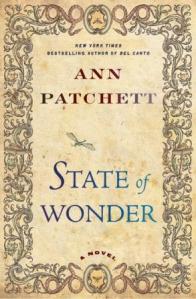 KW: For me, the two books that most affected me in 2011 were Ann Patchett’s State of Wonder and Denis Johnson’s Train Dreams.
KW: For me, the two books that most affected me in 2011 were Ann Patchett’s State of Wonder and Denis Johnson’s Train Dreams.
I think Ann’s novel is her best – a huge, expansive meditation on big issues with the beauty and strangeness of the Amazon. I’m actually teaching it in my Studies in Fiction class at Sewanee this semester, so I’ve read it a few times now, and it stuns me into silence every single time.
Train Dreams is a slim, dream-like novella that is so beautifully and perfectly written that I felt like there wasn’t a single line out of place. It’s a moving story of a single man’s life against the backdrop of the American West. There’s magic in this novella.
Another, slightly strange book that I can’t stop thinking about from 2011 is Megan Boyle’s story/poetry/memoir/blog collection, Selected Unpublished Blog Posts of a Mexican Panda Express Worker. It’s a strange book – the format changes around in each piece – but it’s got a wonderful sense of humor and it feels like one of the most accurate examinations of what it’s like to be alive and young and completely out of sorts.
Interview by Russell J.
